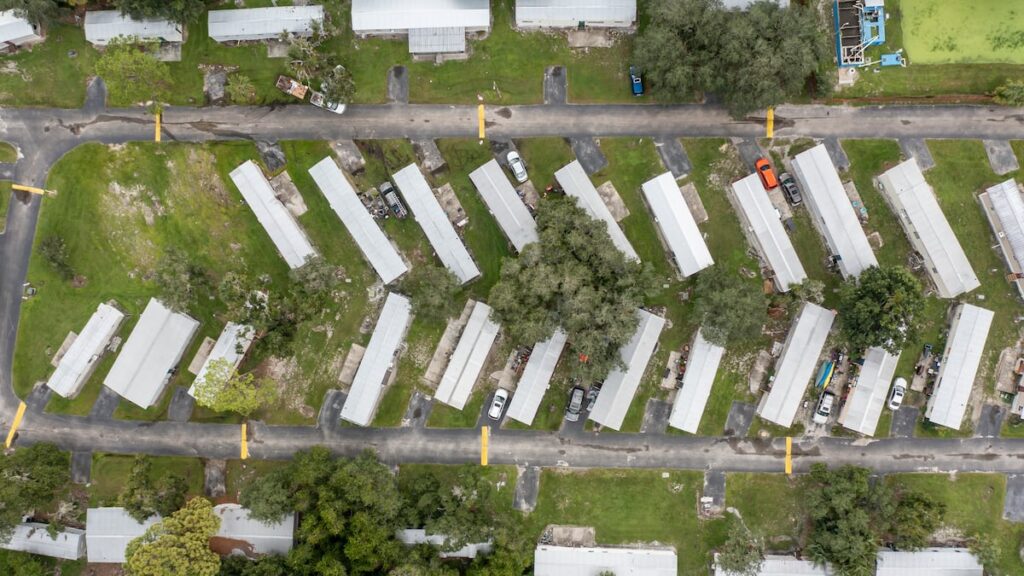Life in Crisis: The Struggles of Mobile Home Residents in Tampa Bay
In the heart of Florida’s rapidly changing landscape, mobile home parks have become a refuge for many families grappling with the soaring costs of living. Yet, for some residents, this sanctuary has turned into a nightmare. This is the plight of families living in mobile home parks owned by Alden Global Capital, an investment firm that has raised concerns about its management practices and the conditions of these once-affordable communities.
A Personal Story of Despair
Jennifer Rivera Cruz and her wife, Dena Guzman, moved into Waterside Mobile Home Park in Gibsonton with hopes for a fresh start. However, they soon found their new living conditions troubling:
- Health Issues: Cruz experienced severe allergic reactions, including hives, soon after moving in.
- Pest Infestation: As night fell, swarms of termites emerged from the walls, covering the family in their sleep.
Cruz recounts, “We would wake up every day at 2, 3 o’clock in the morning, feeling stuff walking in my hair, on my face.” Despite pleading with their landlord, the situation deteriorated, leading the couple to withhold rent until the infestation was handled. Ultimately, they faced eviction just a month later.
The Broader Picture: Alden Global Capital’s Mo
Since 2022, Alden Global Capital has acquired approximately 40 mobile home parks in Hillsborough County. The firm’s aggressive purchasing strategy illustrates a trend that many experts have termed "vulture capitalism," where distressed assets are bought and stripped for profit.
Common Complaints Among Residents
Residents like Cruz and Guzman are not alone. Many current and former tenants reported unsanitary conditions and poor management practices:
- High Eviction Rates: Even before Alden’s acquisition, parks were reporting substantial eviction rates.
- Health Hazards: Common complaints included termites, rodents, and leaking sewage.
Experts warn that corporations often target the most vulnerable populations: immigrants, low-income families, and individuals with previous eviction histories.
Local Response and Legislation
Community leaders, including Rep. Paula Stark, have recognized the dire circumstances within these mobile home parks. Stark notes, “These are our most vulnerable citizens… Things need to change.” She has championed legislative efforts aimed at improving conditions for mobile home residents.
Land as the Real Asset?
While Alden’s actions have led to unsettling living conditions, some speculate that the real motive behind their acquisitions may lie in the land itself. As urban development surges in Tampa, these mobile home parks present ripe opportunities for redevelopment, rather than long-term residence.
Documenting the Struggles
Residents like Cruz, Guzman, and their neighbors have meticulously documented their challenges, from pest infestations to sewage backups. Yet fear often prevents them from speaking out. Most tenants are living on weekly leases that make them vulnerable to landlord retribution.
Looking Ahead: The Need for Change
Florida’s mobile homes are often seen as a last resort for those unable to afford rising housing costs. As crises escalate within these parks, reforms become increasingly critical. Stakeholders emphasize the urgency and necessity to change management practices and safeguard tenant rights.
A Community Divided
The conditions in parks like Waterside serve as a harsh reminder of the challenges many face in securing stable housing. The ripple effects of mismanagement do not just damage property; they fracture communities, leaving families to navigate their challenges largely alone.
For those affected by mobile home park conditions, the struggle is more than just housing; it’s about safety, health, and dignity. Action is required not just from local leaders but from all levels of governance to help restore the promise of safe, affordable housing in Tampa Bay.
For more information on mobile home parks and community rights, visit Nolo.
Conclusion
As the landscape of Tampa Bay evolves, so too must our approach to housing. Learning from the struggles of families like Cruz and Guzman is essential in creating meaningful change and ensuring that all residents have a safe place to call home.


